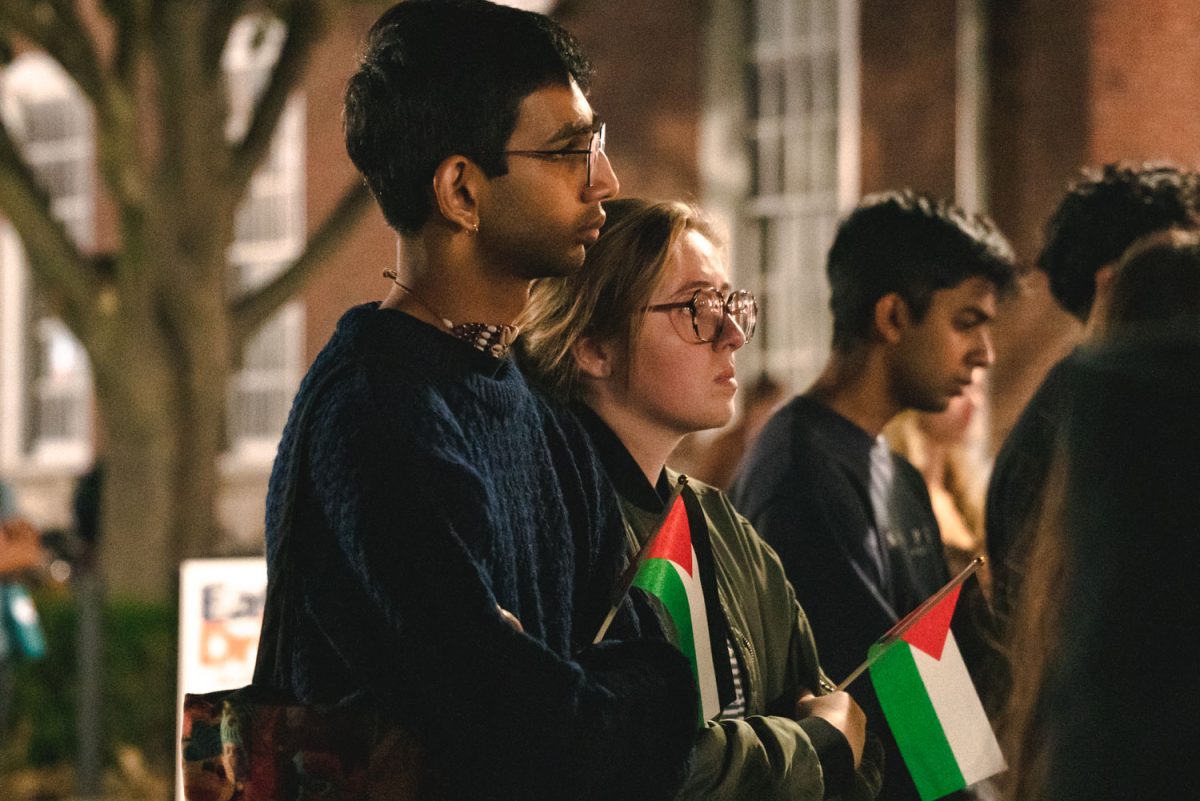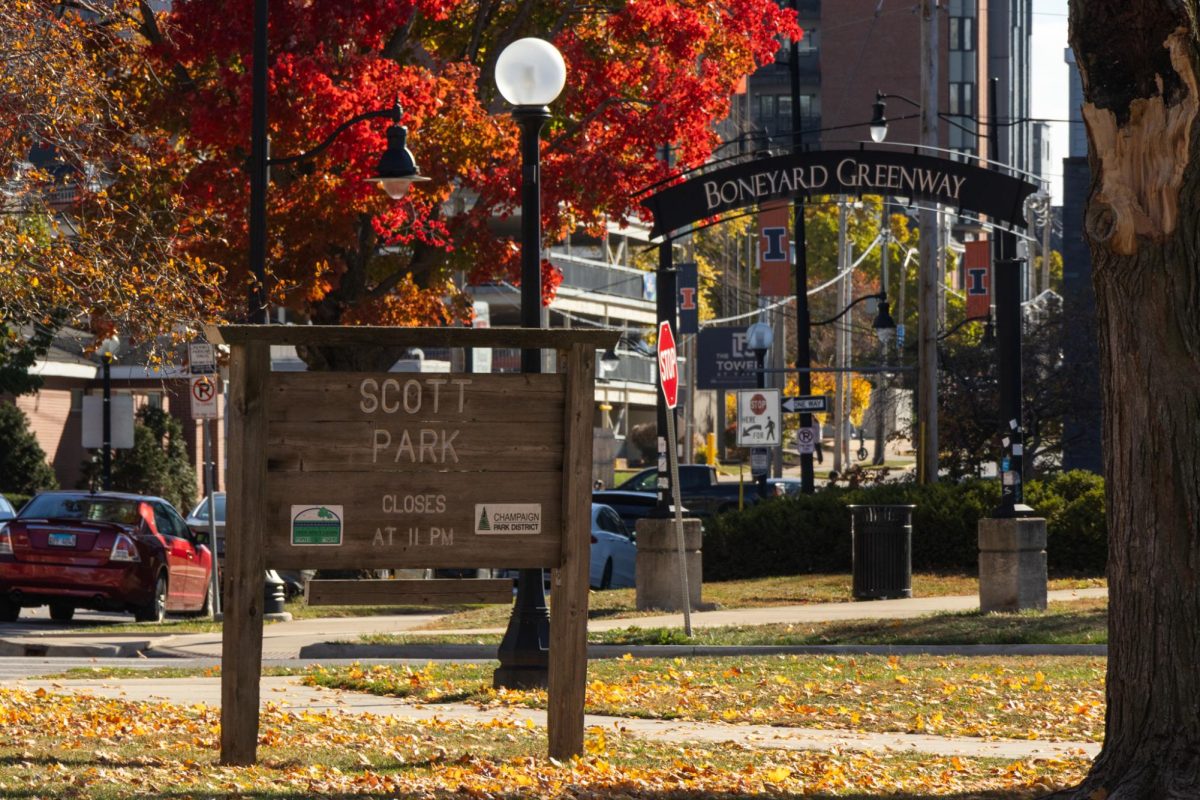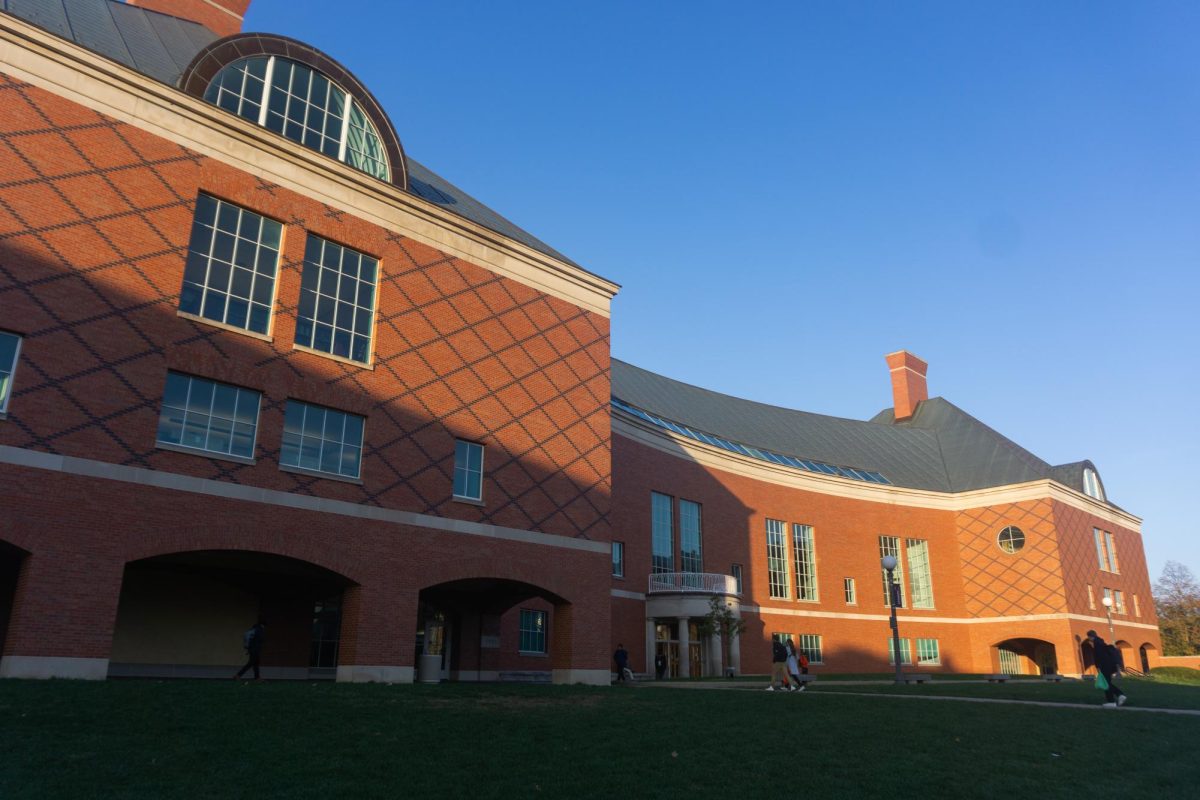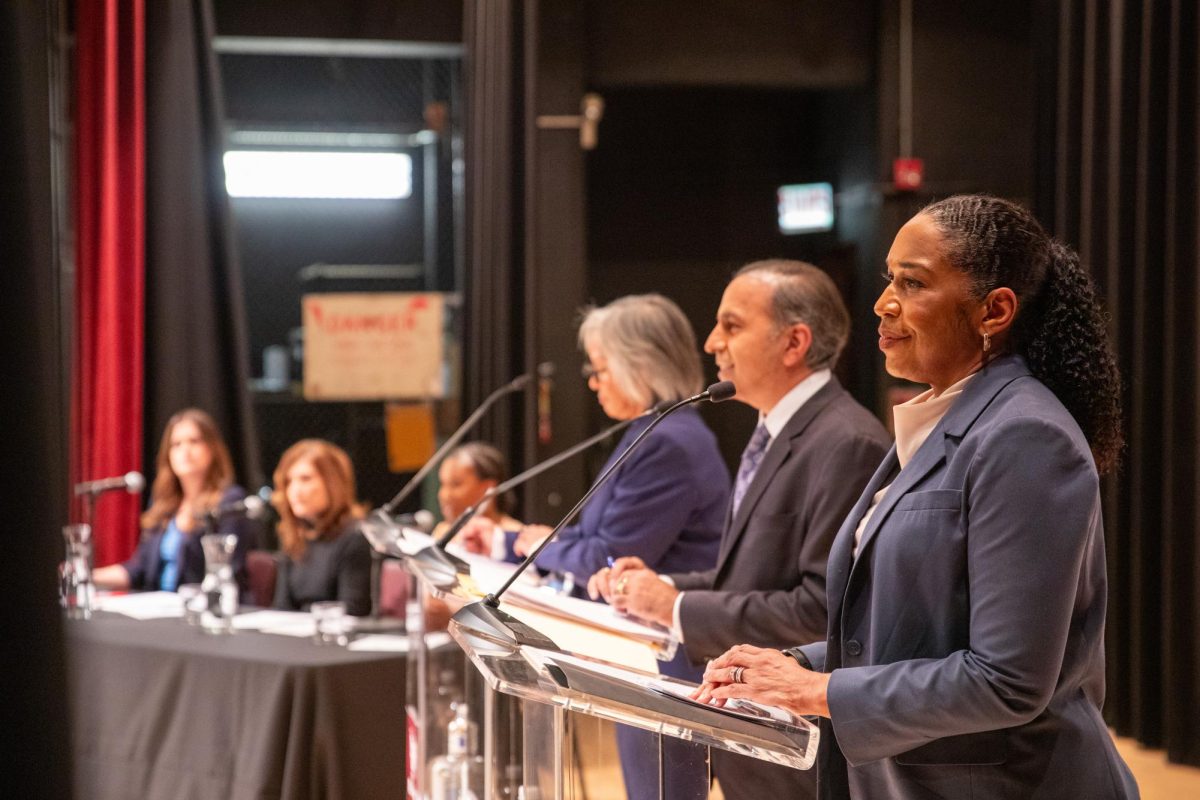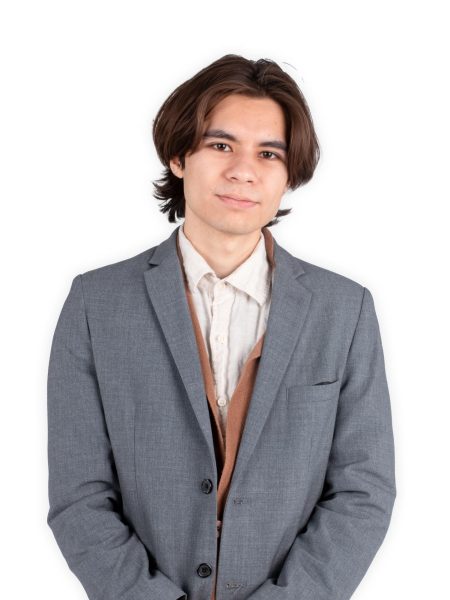**A vigil attendee requested not to be identified by name for safety reasons.**
Students and faculty gathered on Oct. 8 in a silent vigil to honor the 40,000+ Gazans killed in the now-yearlong Israel-Hamas War. A red-splattered Hello Kitty plushie, soccer ball and pair of children’s sneakers were strewn between fake bodies wrapped in stained white cloth and laid in the middle of Anniversary Plaza to represent the dead.
“I’ll never forget one-night last year in November when I received a call from my mom, who told me that my baby cousin, less than a year old, and his entire family were killed in an airstrike in their home,” said a student speaker at the vigil. “Dozens of students at this University are going through the same thing that I am, which is why we will continue to protest against the University’s complicity in these murders.”
A day before the Gaza vigil, Jewish organizations on campus held a memorial for the Oct. 7 attack on Israel, which left almost 1,200 Israelis dead and around 250 taken as hostages by Hamas. Israel then declared war on Hamas, and in their subsequent ground and air campaign, the region of Gaza now faces a humanitarian crisis.
Speaker Maryam Kashani of the Faculty for Justice in Palestine recited only two out of the 800 pages of the deceased names for the vigil to proceed. Students prayed the Isha Sala, the evening prayer, and other Islamic prayers to honor the deceased.
Get The Daily Illini in your inbox!
The vigil was organized by the student-led nonprofit Palestine Children’s Relief Fund, with several other organizations, including the Black Students for Revolution, Champaign-Urbana Muslim Action Committee, UC Jews for Ceasefire, Lebanese Student Association, Students for Justice in Palestine and Faculty for Justice in Palestine, attending and giving speeches in solidarity.
“In this moment of reckoning, I’m afraid the time for reflection alone has passed; it is time to act,” said a speaker from UC Jews for Ceasefire as they called for the divestment of the $27 million in assets linked to the war still held by the University. “Let us show through our actions that never again means never again for anyone.”
While many view Hamas’ attack as the beginning of the war, professor Junaid Rana of FJP dates the conflict’s origins to far before the turn of the 21st century. Seventy-seven years ago, the U.N. passed a resolution that partitioned the Palestinian state into two nations.
When the Arab Higher Committee rejected the resolution, Jewish militia responded with attacks against Palestinian communities, culminating in the 1948 Palestinian war and the expulsion of more than half of the Palestinian population from the region, following years of unrest and the admission of 100,000 Jews into Palestine in the wake of WWII.
The current Israel-Hamas war has since involved Lebanon in the border conflict, with many Western allies calling for a ceasefire between the nations and seeking diplomacy in Gaza.
“It is an 80-year-old issue; in those 80 years, the conflict has seen different ideas of what land belongs to which nation,” Rana said. “I don’t think there’s any justification for the killing of civilians. It’s as simple as that.”
The executive board of PCRF was grateful to see people “from all walks of earth come together and just stand for one common cause” at the vigil but hoped no other memorial would be necessary in the future.
“It has been a full year, so we’re making sure that people don’t forget about who these people are, and to reignite and say, ‘Hey, this is still ongoing; this should not be happening,’” said an anonymous member of PCRF.
PCRF will plan more educational events in support of both Palestine and Lebanon throughout this school year, including a fundraising gala in February.
“(Our work) is far from over, and we still have to rebuild Gaza,” the anonymous member said. “We’re just going to keep doing the same events that we do to educate people about Palestine.”



